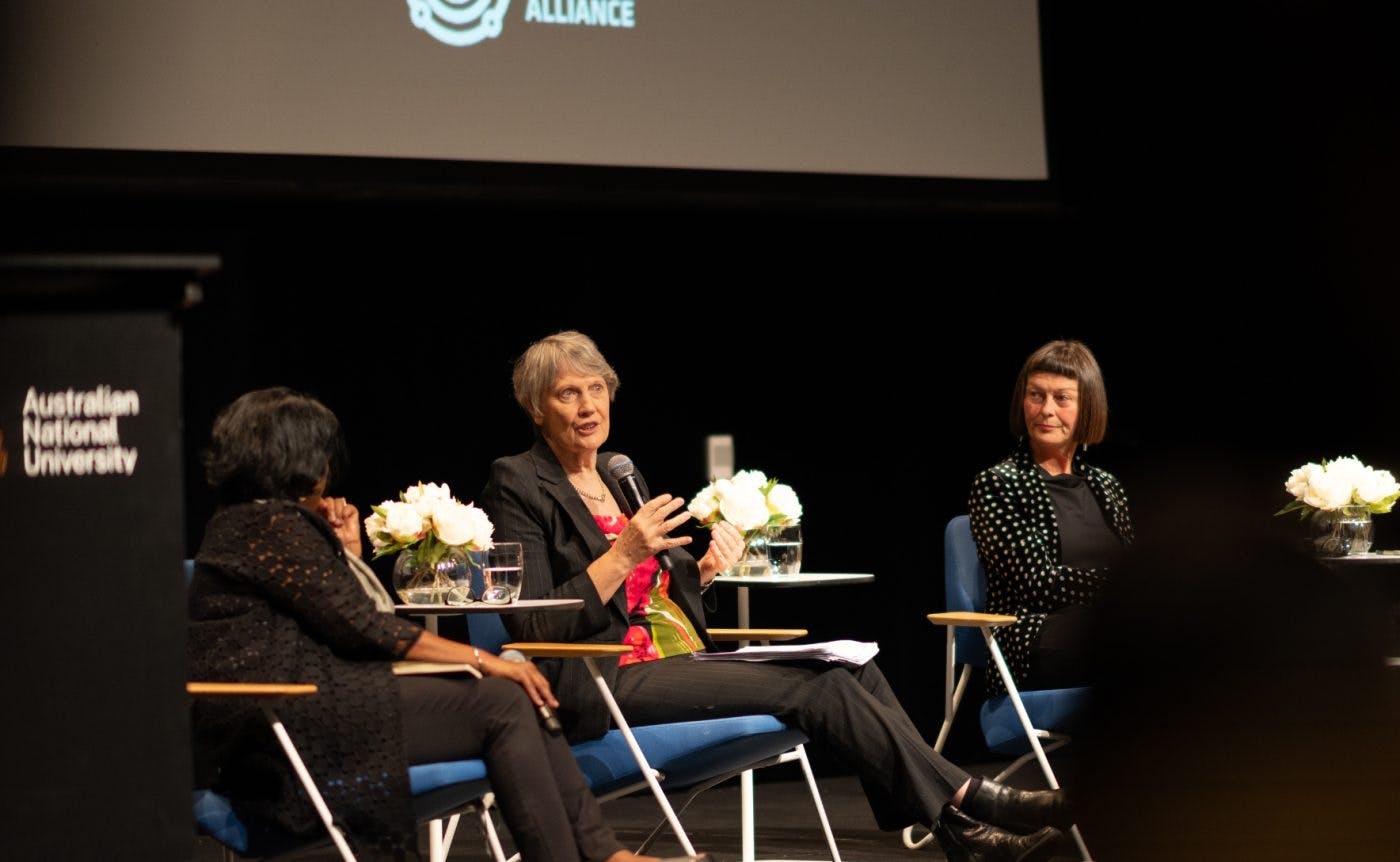The past few years have been an “age of crises,” according to former New Zealand prime minister, the Right Honourable Helen Clark.
On a panel about health and human security at The Australian National University (ANU), Ms Clark, who also led the United Nations Development Programme, said she could not recall experiencing a period quite like the present.
“I can’t think of anything like it in my lifetime – where so many different things are coming at us, all impacting, in one way or another, on our health and on the health of populations,” Ms Clark said.
“Horrific conflict, climate crises, pandemics-and not just COVID-19, but the ones that have never gone away, like HIV-inequality, discrimination and power imbalances. The issues are genuinely endless, particularly for those most marginalised.”
So, what can we do to build a healthier future?
Director of the ANU Planetary Health Equity Hothouse and the Australian Research Centre for Health Equity, Professor Sharon Friel said that addressing inequality is instrumental.
“Inequality in society, in and of itself, is bad for physical and mental health. Relative inequity gets into our heads, it gets under our skin, increases our risk of cardiovascular disease, as well as our risk of mental ill health,” Friel said.

“I find it remarkable that we continue, as a global society, with the levels of inequality that we see between countries and within countries, particularly when measured by distribution of wellbeing and health outcomes.
“And when you overlay it with all these issues, frankly, if we do nothing about climate change, and we do nothing about global inequalities, then we are stuffed.”
Policy, politics, power and change
Despite decades of commitments from government for change on social, economic and security determinants of health, progress remains slow.
“The more polarised the politics, the harder it is for policies to stick,” Ms Clark said. “And we’re starting to see this in New Zealand as well on some of the big public health issues like tobacco. We get these periods where government work proactively on these issues, and then slam on the brakes, falling to the power of those that are incredibly influential.
“Big corporations have a lot of power. States still have a lot of power. And we see also that Big Tech has power.”
“Fundamentally we need the galvanising of a coalition,” Friel said. “One that says, ‘it’s not about a particular minutia of an issue. It’s not about the easy wins. It’s about the long-term public interest’.”
While it’s easy to feel overwhelmed by complex problems, speaking up about inequality can make a difference.
Ms Clark urged the audience to “raise the issues, never give up, relentlessly campaign”.
“While it can seem like water dripping on stone, over time, water dripping on stone does make a dent.”
Professor Bina D’Costa, an international relations expert from the ANU Coral Bell School of Asia Pacific Affairs, said that global change can start locally.
“We’ve seen this with the Human Rights Council declaration in 2021, with [the implementation of] ‘a healthy environment is a human right’. This involved the Secretary General, 15 UN agencies, the business community, young activists and human rights defenders on the ground. There were 1,300 civil society organisations, who took the issue to the different corners of the world,” D’Costa said.
“And while it didn’t happen easily, and it came with great risk, it has had an impact.”
A seat at the table
Another critical element of addressing inequality is ensuring people with lived experience play a role in developing the responses and solutions.
“People who are on the margins of their communities perform different kinds of political labour, and have an understanding that, if recognised and used, can be important at the global level,” D’Costa said.
As the first female prime minister of New Zealand, there are few more qualified than Ms Clark to talk about the importance of representation.
“At the last parliament in New Zealand, the numbers of women had reached the 50 per cent mark, from nine per cent in 1981. And it is becoming more diverse in other ways, LGBTQI+, ethnic community representation, and a younger generation,” Ms Clark said.
“My sense is that they are coming in to make their contribution now. They’re not expecting to be there for a long time, and as such they are driving a radical change.”
Listen to the full conversation recording on the Policy Forum Podcast




